Your search “Keep the Deacth Penalty Abolished fin the philippines /page/www.humanrights.asia/resources/report/2011/AHRC-sur-008-2011/act_download/file ”

Article(s)
Philippines: one step forward in the reintroduction of the death penalty
By Lorène du Crest, on 3 March 2017
The Philippines are a step closer to the reintroduction of the death penalty, violating their international obligations.
2017
Drug Offenses
Philippines
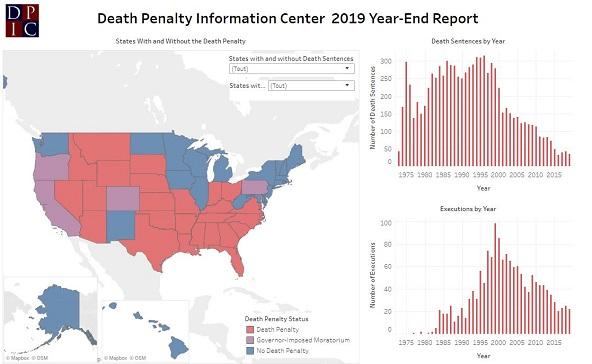
Article(s)
DPIC Report on the 2019 Death Penalty Usage in the US
By Dinda Royhan, on 20 December 2019
A year-end report by the Death Penalty Information Center highlights the continuing trend towards abolition with New Hampshire’s latest abolition, California’s moratorium, and the near-record low numbers of executions.
2019
United States
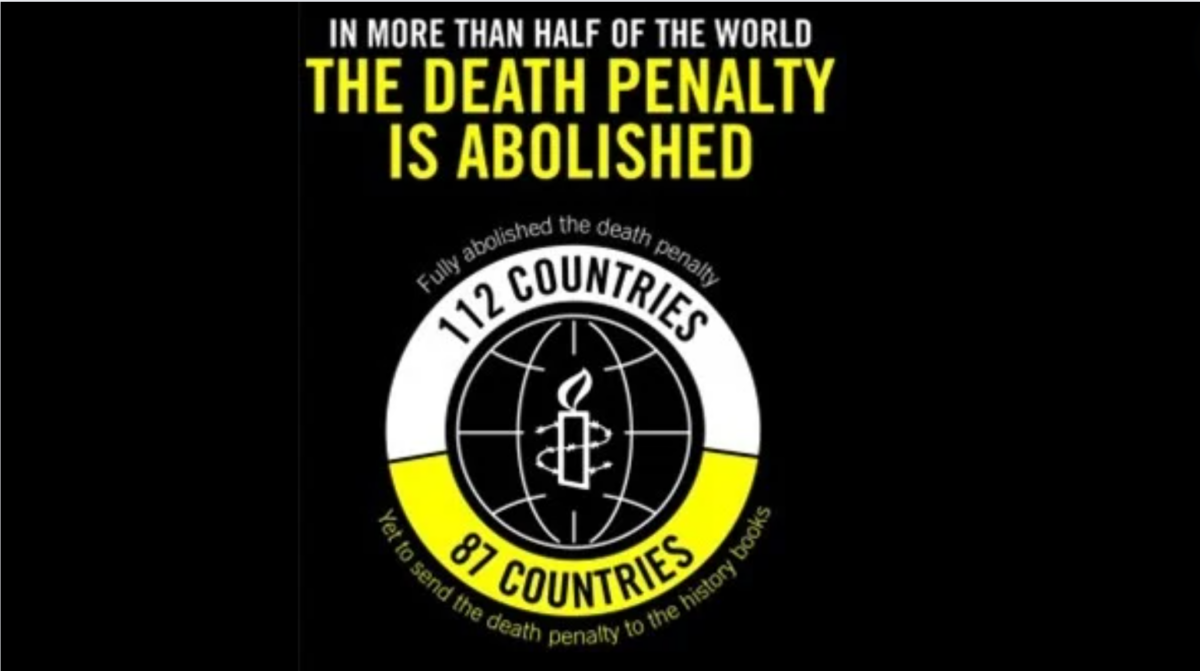
Article(s)
A decrease in the number of countries with the death penalty worldwide, despite an increase in executions
By World Coalition against the death penalty , on 20 June 2024
On 29 May 2024, Amnesty International published its annual report on the state of the death penalty worldwide. Amnesty International’s monitoring shows that in 2023 the lowest number of countries on record carried out the highest number of known executions in close to a decade.
2024

Article(s)
Child rights highlighted on the 17th World Day Against the Death Penalty
By Dinda Royhan, Majdoulin Sendadi, on 25 November 2019
On 10 October 2019, we celebrated the 17th World Day against the Death Penalty with various activities aimed to raise awareness on the death penalty and children as its unseen victims. Abolitionist forces in the two continents that gather most retentionist countries, Africa and Asia, were particularly active in raising awareness on the necessity to abolish the death penalty and its impacts on children this year.Through conferences, meetings, exhibitions, art installations, prison visits, radio broadcasts, flash mobs, dances and many other kinds of events, abolitionist forces in every continent took action to raise awareness about the use of death penalty in their national jurisdiction. The death penalty not only violates the fundamental right to life, but it also impacts the rights of children when the State sentences or executes a parent and has been found to have a long-term impact on the child’s best interest.
2019
Juveniles
Document(s)
UN Special Procedures toolkit – World Day 2023
By FIACAT and the World Coalition Against the Death Penalty, on 18 September 2023
2023
World Coalition
frMore details Download [ pdf - 345 Ko ]
There are several ways in which individuals and non-governmental organizations (NGOs) can work with the UN to report human rights violations. One way is through the special procedures of the UN Human Rights Council (HRC). Find out how to work with them here.
- Document type World Coalition
- Available languages Travailler avec les Procédures spéciales des Nations unies - Journée mondiale 2023
Document(s)
Children, Youth and the Death Penalty
By International Commission against the Death Penalty, on 23 June 2023
2023
NGO report
Juveniles
More details See the document
ICDP announces the launch of its latest report: Children, Youth and the Death Penalty. The issue of how the death penalty affects children and youth is often ignored by policy makers. This report aims to change that by putting the protection of children’s rights at the center of the debate on the death penalty.
The report builds on the panel discussion titled “Youth and the Death Penalty,” which was organized by the International Commission against the Death Penalty (ICDP) and the Government of Australia. The discussion was held on 29 June 2022, at the sidelines of the 50th session of the UN Human Rights Council, in Geneva.
- Document type NGO report
- Themes list Juveniles
Document(s)
Bylaws of the World Coalition Against the Death Penalty 2023
By World Coalition Against the Death Penalty, on 22 August 2023
2023
World Coalition
Trend Towards Abolition
frMore details Download [ pdf - 146 Ko ]
- Document type World Coalition
- Themes list Trend Towards Abolition
- Available languages Statuts de la Coalition mondiale contre la peine de mort 2023
Article(s)
US activists turn spotlight on executed innocent man
on 28 September 2009
An official report and a feature in the New Yorker have confirmed that Todd Willingham was not guilty of the arson for which he was executed. Abolitionist campaigners are now targeting his case.
2009
Innocence
United States
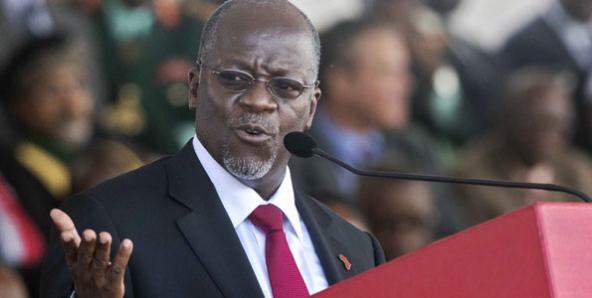
Article(s)
Tanzania: President Magufuli declares his position against the death penalty.
By Thalia Gerzso, on 20 September 2017
While officiating the new Chief Justice at the State House, the President of Tanzania, President Magufuli, expressed his support towards the abolitionist movement by refusing to sign any future death warrant. For the Tanzanian Coalition Against the Death Penalty, this statement is an unhoped opportunity to ask for the complete abolition of the death penalty in the country.
2017
United Republic of Tanzania
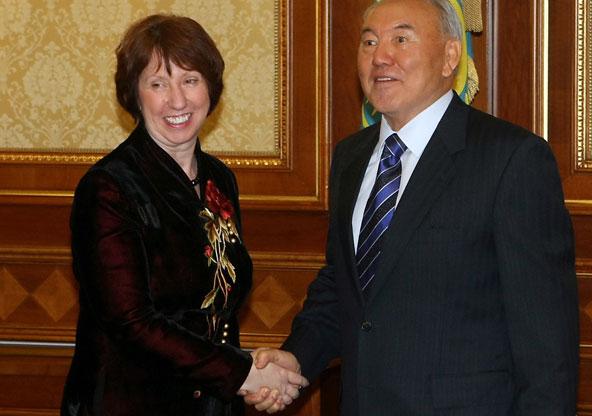
Article(s)
Kazakh criminal law reform could add capital crimes
By Thomas Hubert, on 15 February 2013
As Kazakhstan’s authorities prepare to introduce a new penal code, World Coalition members are warning against attempts to broaden the offences punishable by death.
2013
Kazakhstan
Moratorium
Public Opinion
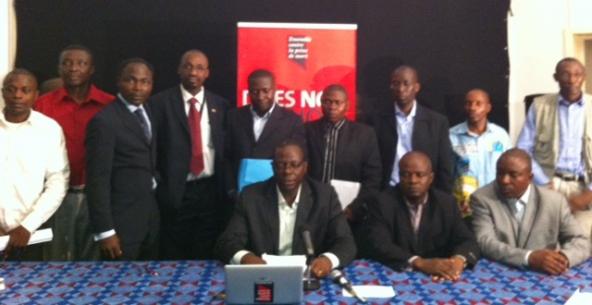
Article(s)
Abolitionists of Central Africa met in Kinshasa
By Amina Jacquemin with CPJ and ECPM, on 12 April 2012
ECPM (Together against the death penalty) and CPJ (Culture for Peace and Justice) organized a conference in late March on strategies for abolition at the regional level. The Congolese government has reaffirmed its commitment to abolish the death penalty.
2012
Burundi
Cameroon
Central African Republic
Chad
Congo
Democratic Republic of the Congo
Kenya
Uganda
United Republic of Tanzania

Helping the World Achieve a Moratorium on Executions
on 20 December 2022
In 2007, the World Coalition made one of the most important decisions in its young history: to support the Resolution of the United Nations General Assembly for a moratorium on the use of the death penalty as a step towards universal abolition. A moratorium is temporary suspension of executions and, more rarely, of death sentences. […]
2022
Moratorium
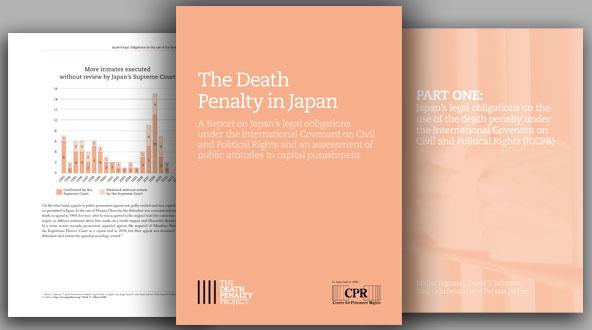
Article(s)
Japan in breach of international standards, opinion wavering – study
By Thomas Hubert, on 14 March 2013
A report published by the Death Penalty Project and the Center for Prisoners’ Rights shows that Japanese law and practice on capital punishment violate international treaties, and questions the high level of public support for the death penalty reported by the authorities.
2013
Japan
Public Opinion
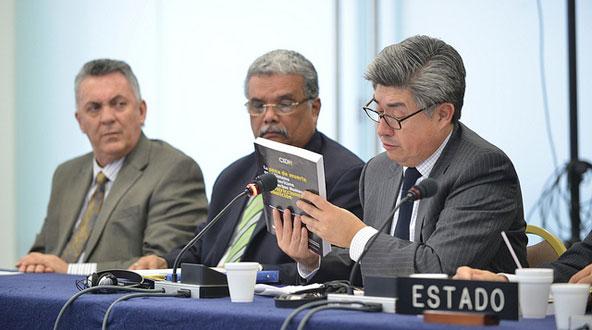
Article(s)
Organisation of American States considers moratorium
By Tiziana Trotta, on 15 March 2013
The Inter-American Commission on Human Rights warns that litigation is insufficient to combat the death penalty.
2013
Argentina
Brazil
Costa Rica
Cuba
Dominican Republic
Ecuador
Guatemala
Mexico
Moratorium
Panama
Suriname
Trinidad and Tobago
United States
Document(s)
Yemen – Committee on the Elimination of Discrimination Against Women – Death Penalty – September 2021
on 20 September 2021
2021
NGO report
World Coalition
Women
Yemen
More details Download [ pdf - 272 Ko ]
Women in conflict with the law in Yemen are at risk of experiencing gender-based discrimination within the legal system and while detained. Such discrimination is particularly acute when women are at risk of being sentenced to death. For example, in Houthi-controlled parts of Yemen, women are in danger of being sentenced to death for “spying,” often based primarily on the conduct of their male family members. In parts of the country controlled by the internationally recognized Government of Yemen, women accused of capital offenses are denied legal aid to mount a successful defense. And because of the mandatory nature of the death penalty for crimes such as murder, courts do not take into account an accused woman’s experiences of gender-based violence that may have motivated her actions. Women are also often financially unable to gather sufficient resources to pay “blood money” to victims’ families. Detention conditions for women, particularly in Houthi-controlled parts of Yemen, amount to cruel, inhuman, and degrading treatment and in some cases prison authorities torture women detainees.
Because of continued internal conflict in Yemen, there is limited official data regarding the number of women currently sentenced to death. For the same reason, there is only limited information regarding detention conditions of women sentenced to death.
- Document type NGO report / World Coalition
- Countries list Yemen
- Themes list Women
Document(s)
The Death Penalty in Bahrain: A system built on torture
on 14 January 2022
2022
NGO report
Bahrain
arfrMore details See the document
Salam for Democracy and Human Rights (Salam DHR)’s report was published on October 10, 2021, to mark the 19th World Day Against the Death Penalty. The Death Penalty in Bahrain: A system built on torture, provides accessible and abridged information regarding the development of the death penalty in Bahrain.
This report examines how executions have expanded in both their criteria and implementation since the Arab Spring in 2011 and how this practice contradicts the Government of Bahrain’s (GoB) promises of reform made following the Bahrain Independent Commission of Inquiry (BICI) that same year. Instead, the Bahraini State continues to rely on confessions coerced under torture and threats as a method of permanently silencing poliIcal prisoners. The nation’s internal mechanisms of accountability have repeatedly proven themselves to be ineffective in remedying this situation and are possibly complicit. Considering these findings, and in support those who have been victimized, Salam DHR officially recommends that the GoB abolishes the death penalty, among other reforms.
- Document type NGO report
- Countries list Bahrain
- Available languages عقوبة الإعدام في البحرين : نظام مبني على التعذيبLa Peine de Mort à Bahreïn: Un Système Construit sur la Torture
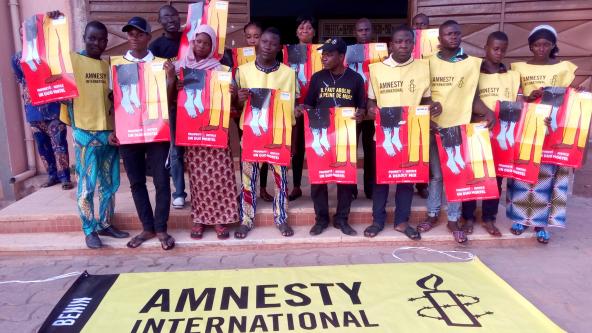
Article(s)
Strong mobilization in Sub-Saharan Africa on World Day
By Thalia Gerzso, on 19 October 2017
On October 10, 2017, all the abolitionists all around the world joined their forces to celebrate the 15th World Day Against the Death Penalty. The mobilization was particularly strong in Sub-Saharan Africa where many events were organized. Thus, the pugnacity of African abolitionists put the abolition of the death penalty at the heart of every discussion.
2017
Public Opinion
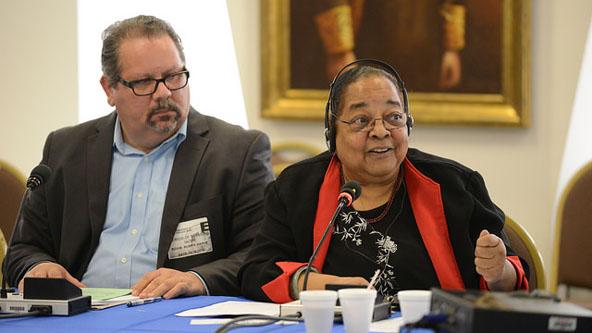
Article(s)
Greater Caribbean for Life addresses Inter-American Commission on death penalty in their region
on 19 March 2015
On Monday, 16 March 2015, the Greater Caribbean for Life (GCL) addressed the Inter-American Commission on Human Rights (IACHR) on issues relating to the death penalty in the Greater Caribbean, during a dedicated thematic hearing held at the Organisation of American States (OAS) headquarters in Washington, D.C., USA.
2015
Antigua and Barbuda
Argentina
Bahamas
Barbados
Belize
Bolivia (Plurinational State of)
Brazil
Canada
Chile
Colombia
Costa Rica
Cuba
Dominica
Dominican Republic
Ecuador
El Salvador
Grenada
Guyana
Haiti
Honduras
Jamaica
Mexico
Nicaragua
Panama
Paraguay
Peru
Saint Kitts and Nevis
Saint Lucia
Saint Vincent and the Grenadines
Suriname
Trinidad and Tobago
United States
Uruguay
Venezuela (Bolivarian Republic of)
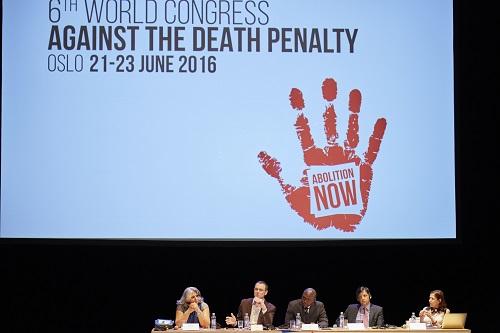
Article(s)
Roundtable on terrorism at the 6th World Congress against the death penalty
By Marion Gauer, on 28 June 2016
From 21th to 23rd of June, the 6th World Congress against the death penalty took place in Oslo. These three days constituted an opportunity to gather the civil society, the political actors and lawyers worldwide, in order to discuss strategies aiming at abolishing the death penalty around the world. Among the noteworthy debates which were organized during this congress, the roundtable that was dedicated to terrorism (being also the theme of the next World Day against the death penalty, organized by the World Coalition) raised significant issues related to the use of the death penalty while countering terrorism.
2016
Norway
Terrorism
Document(s)
UN Special Procedures toolkit – World Day 2022
By FIACAT and the World Coalition Against the Death Penalty, on 26 September 2022
2022
World Coalition
frMore details Download [ pdf - 335 Ko ]
There are several ways in which individuals and non-governmental organizations (NGOs) can work with the UN to report human rights violations. One way is through the special procedures of the UN Human Rights Council (HRC). Find out how to work with them here.
- Document type World Coalition
- Available languages Travailler avec les Procédures spéciales des Nations unies - Journée mondiale 2022

Article(s)
Sharing best practices on ratifying the UN treaty to abolish the death penalty
By Aurélie Plaçais, on 25 September 2011
Belgium and the United Nations’ human rights office have held a panel discussion to promote efforts in favour of the strongest international instrument against capital punishment.
2011
Belgium
Mongolia
Moratorium
Russian Federation

Article(s)
Community of Sant’Egidio Calls for Universal Abolition with Cities for Life, Cities Against the Death Penalty
By Louis Linel, on 8 December 2020
The discussion was chaired by Mario Marazitti, who stood in front of broadcasted live images of the light-draped Colosseum in Rome, Italy, displaying the slogan of this international key event, “No Justice Without Life”.
2020
Italy
Malaysia
Public Opinion
United States
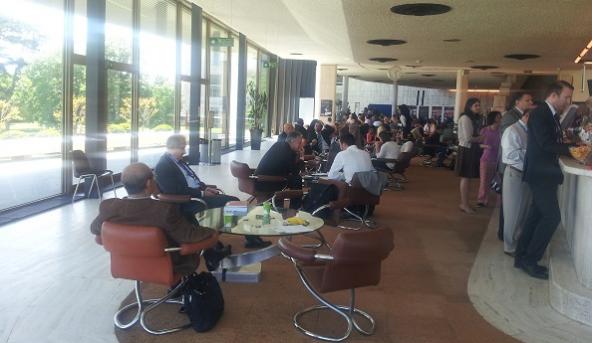
Article(s)
Abolitionist NGOs lobby to educate UN member states in Geneva
By Aurélie Plaçais, on 22 April 2015
Several World Coalition members carried out intense advocacy activities during and after the March session of the Human Rights Council to prepare for the coming UPR session, during which Liberia, Malawi and the USA will be examined.
2015

Article(s)
Documenting Human Rights Violations in North Korea
By Hédia Zaalouni, on 16 January 2020
The Transitional Justice Working Group (TJWG) released a report in June 2019 entitled “Mapping the Fate of the Dead (Killings and Burials in North Korea)”.
2020
Democratic People's Republic of Korea
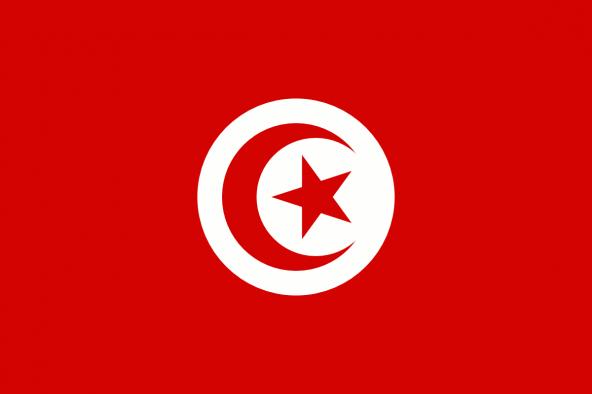
Article(s)
Creation of the Tunisian Coalition Against the Death Penalty
on 21 June 2007
The representativesof the seven NGOs who met in Tunis on 14 June have announced the creation of the Tunisian National Coalition Against the Death Penalty.
2007
Tunisia
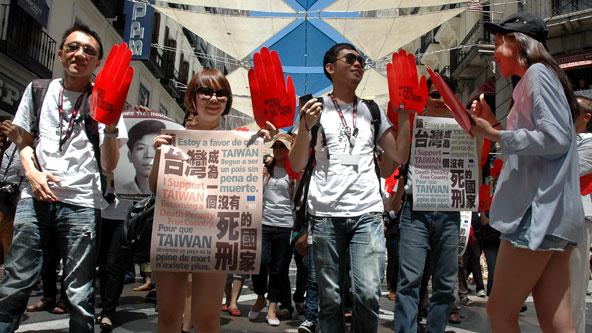
Article(s)
Asian progress paves the way for new strategies
By Thomas Hubert, on 20 June 2013
Although most executions continue to take place in Asia, their number is going down – and abolitionists are coming up with new ideas to bring about abolition.
2013
India
Japan
Malaysia
Mongolia
Moratorium
Singapore

18th World Day Against the Death Penalty: Access to Counsel – A Matter of Life or Death
on 18 September 2020
Without access to effective legal representation during arrest, detention, trial and post-trial, due process cannot be guaranteed. In a capital case, the consequences that can arise from a lack of effective legal representation can be nothing less than the difference between life and death. On the national and international levels, the right to legal representation […]
2020
Public Opinion
Article(s)
Joint Italian-Congolese effort against capital punishment
on 16 June 2009
World Coalition member organisation Hands Off Cain has launched a campaign targeting DRC’s opinion leaders. The government regards the renovation of the prison system as a prerequisite for abolition.
2009
Democratic Republic of the Congo
Italy
Moratorium
Article(s)
Taiwan activists battle in death penalty-triggered political crisis
on 19 March 2010
After Taiwan’s justice minister was forced to step down for not signing execution warrants, local and international abolitionists rushed in to restore a balanced debate and protect the country’s 44 death row inmates.
2010
Moratorium
Public Opinion
Taiwan
Taiwan
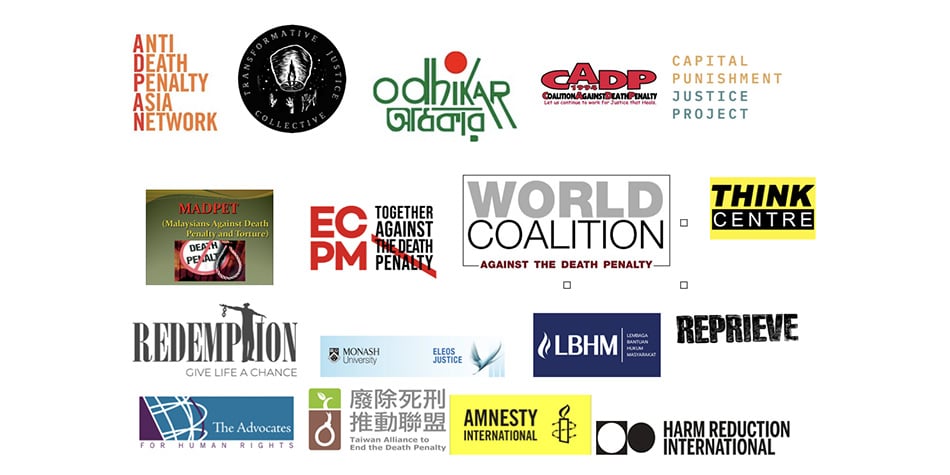
Article(s)
Calling on Singapore to respect international safeguards and halt executions
on 3 May 2024
We are greatly concerned by the news that the Government of Singapore has issued at least five execution notices since 12 April 2024, all cases in relation to drug offending. Transformative Justice Collective, a member of the Anti-Death Penalty Asia Network, reports that in four of these five cases, the execution was stayed at the […]
2024
Drug Offenses
Fair Trial
Legal Representation
Singapore
Document(s)
Bylaws 2021
By World Coalition Against the Death Penalty, on 9 September 2021
2021
World Coalition
frMore details Download [ pdf - 97 Ko ]
Bylaws of the World Coalition Against the Death Penalty As Amended by the 18 June 2021 General Assembly
- Document type World Coalition
- Available languages Statuts 2021
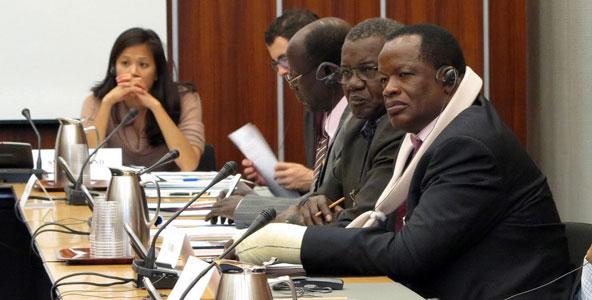
Article(s)
Abolitionist movement turns to parliamentarians
By World Coalition Against the Death Penalty, on 11 October 2013
Two major events brought together international MPs on World Day Against the Death Penalty to further parliamentary cooperation in the struggle against capital punishment. The World Coalition will publish a handbook to assist abolitionist parliamentarians.
2013
Algeria
Egypt
France
Jordan
Kazakhstan
Lebanon
Libya
Mauritania
Morocco
State of Palestine
Tunisia
United Kingdom
Preventing the return of the death penalty
on 19 August 2022
While the progress of the global abolitionist movement seems irreversible, some abolitionist in law or abolitionist in practice countries are threatening to return to the death penalty and resume executions. Since 2018, the World Coalition has been campaigning globally to systematize a response to these risks of reinstating the death penalty after its abolition.
2022
Maldives
Philippines
Sri Lanka
Turkey
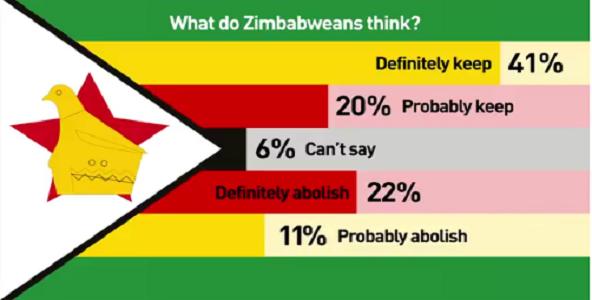
Article(s)
12 Years Without an Execution: Is Zimbabwe Ready for Abolition?
By Death Penalty Project, on 24 May 2018
The Death Penalty Project, in partnership with Veritas, launches “12 Years Without an Execution: Is Zimbabwe Ready for Abolition?” a national public opinion study, providing for the first time comprehensive and contextualised data on public attitudes towards the death penalty in Zimbabwe – a country that has not carried out any executions in over 12 years.
2018
Public Opinion
Zimbabwe

Article(s)
How Business May Contribute to Universal Abolition
By Louis Linel, on 29 January 2021
Non-governmental organizations (NGOs) have long been at the forefront of the movement for human dignity, as the main, highly-specialized – and sometimes isolated– champions for social justice. However, a new generation of advocates from the private sector, whose primary center of interest or area of expertise seems disconnected from international human rights standards, has been […]
2021
Public Opinion
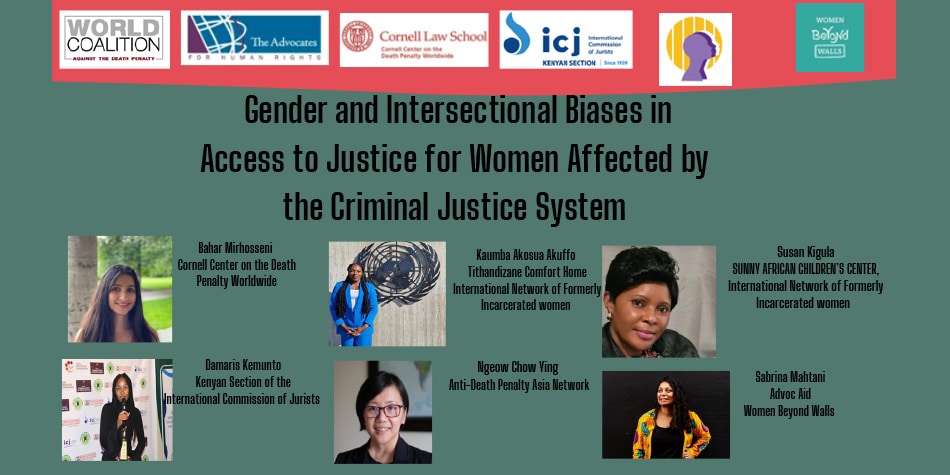
Article(s)
Access to justice and discrimination: the World Coalition organizes a briefing for the UN Working Group on Discrimination against Women and Girls
By World Coalition Against the Death Penalty, on 26 September 2024
2024
Gender
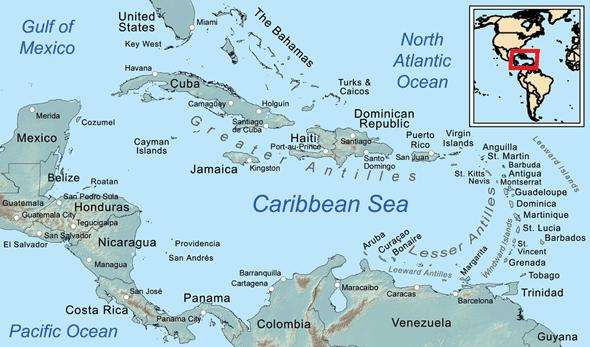
Article(s)
International conference addresses Caribbean outlook on capital punishment
By Emile Carreau, on 26 October 2011
A two-day conference organised by the Community of Sant’Egidio on the death penalty in the Greater Caribbean took place in Madrid between 17-19 October, highlighting issues of rising crime and international influence in the region.
2011
Murder Victims' Families
Public Opinion
Article(s)
California Democratic Party endorses abolition of the death penalty
on 12 May 2010
One of the two main political parties in the largest US State has taken a formal stance against capital punishment – with help from local abolitionist organisations.
2010
Public Opinion
United States
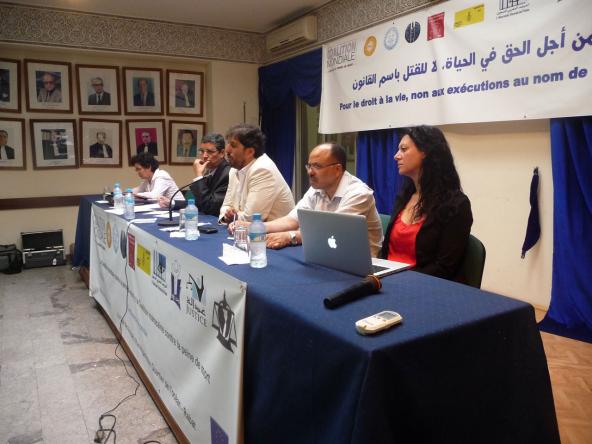
Article(s)
World Coalition AGM among largest abolitionist events in the Arab world
on 6 June 2011
The World Coalition Against the Death Penalty has announced its June annual general assembly at a press conference in Rabat, Morocco.
2011
Morocco

Article(s)
World Coalition to celebrate 10th anniversary in Jordan
By Aurélie Plaçais, on 28 May 2012
At the invitation of Penal Reform International’s regional office in Jordan, the World Coalition Against the Death Penalty is holding its 10th annual general meeting in Amman, Jordan on 16-17 June 2012.
2012
Jordan
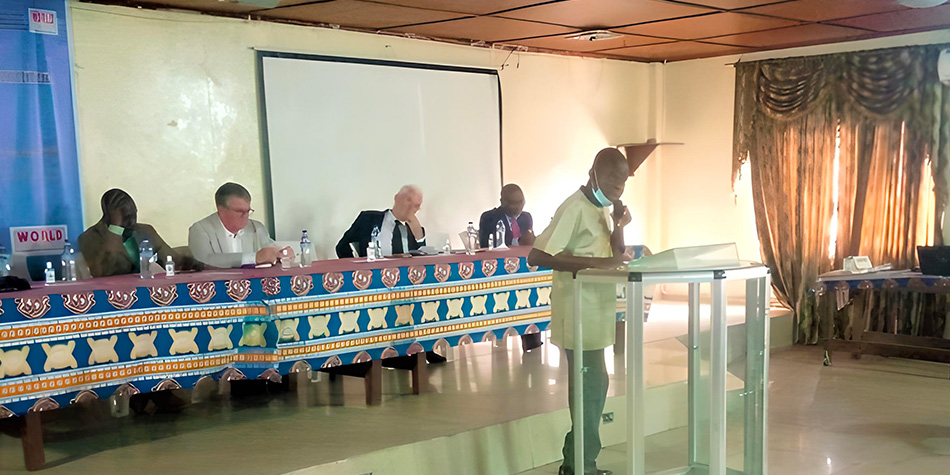
Article(s)
Liberian Civil Society Organize to Push for Abolition
By Rescue Alternatives Liberia and the World Coalition Against the Death Penalty, on 29 April 2022
On 12 April 2022, Rescue Alternatives Liberia (RAL) orchestrated a one-day forum on abolition in Liberia with the support of the World Coalition Against the Death Penalty. The outcomes of this event were very promising, and time will tell if abolition in Liberia is near.
2022
Liberia
Public Opinion
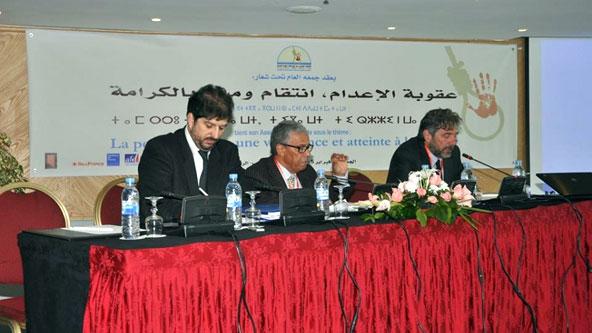
Article(s)
Moroccan Coalition tackles death penalty for terrorism
By World Coalition Against the Death Penalty, on 13 March 2015
The Moroccan Coalition against the Death Penalty held its AGM in Rabat on 27 and 28 February. An unprecedented debate around the death penalty related to terrorism took place during the event.
2015
Morocco
Terrorism
Document(s)
A/HRC/RES/54/35 Resolution adopted by the Human Rights Council
on 7 February 2024
2024
International law - United Nations
aresfrruzh-hantMore details See the document
- Document type International law - United Nations
- Available languages A/HRC/RES/54/35قرار اعتمده مجلس حقوق اإلنسانA/HRC/RES/54/35 Resolución aprobada por el Consejo de Derechos HumanosA/HRC/RES/54/35 Résolution adoptée par le Conseil des droits de l’hommeA/HRC/RES/54/35 Резолюция, принятая Советом по правам человекаA/HRC/RES/54/35 人权理事会 通过的决议
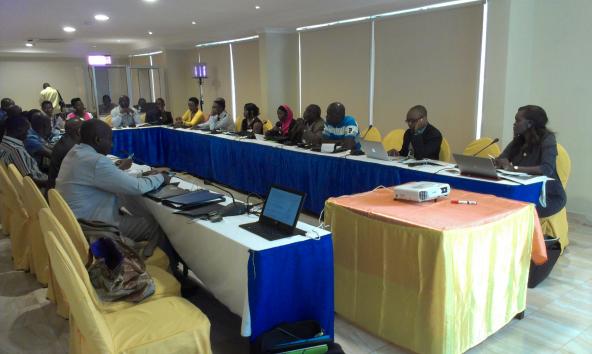
Article(s)
The World Coalition mission in Tanzania and the project on Sub-Saharan Africa
By Federica Merenda, on 28 April 2016
In the context of the new project to increase mobilization towards the abolition of the death penalty in Africa, from 15 to 19 April 2016 the World Coalition Against the Death Penalty has been engaged in several important activities in Dar es Salaam, Tanzania.Tanzania is a country that still retains the death penalty in its laws though it is abolitionist in practice, the last execution took place in 1994.
2016
United Republic of Tanzania
Document(s)
Capital punishment and implementation of the safeguards guaranteeing protection of the rights of those facing the death penalty
By United Nations , on 26 May 2021
2021
United Nations report
aresfrruzh-hantMore details See the document
Summary
In its resolution 1745 (LIV) of 16 May 1973, the Economic and Social Council invited the Secretary-General to submit to it, at five-year intervals starting from 1975, periodic updated and analytical reports on capital punishment. The Council, in its resolution 1995/57 of 28 July 1995, recommended that the quinquennial reports of the Secretary-General continue to cover also the implementation of the safeguards guaranteeing protection of the rights of those facing the death penalty.
In the same resolution, the Council requested the Secretary-General, in preparing the quinquennial report, to draw on all available data, including current criminological research. The present report, which is the tenth quinquennial report, contains a review of the use of and trends in capital punishment, including the implementa tion of the safeguards during the period 2014–2018.
In accordance with resolutions 1745 (LIV) and 1990/51, of 24 July 1990, of the Economic and Social Council, as well as its decision 2005/247 of 22 July 2005, the present report is submitted to the Council at its substantive session of 2020, and will also be before the Commission on Crime Prevention and Criminal Justice at its twenty-ninth session and the Human Rights Council at its forty-fourth regular session.
The report on the 2014–2018 quinquennium confirms the trend documented in previous reports towards abolition and restriction of the use of capital punishment in most countries. The number of States that have abolished the death penalty in law and in practice continued to grow. This is reflected in the increased number of States bound by treaty obligations not to implement the death penalty. The quinquennium also witnessed some years of dramatic increases in the number of executions, which were carried out by a small number of States. The situation stabilized at the end of the survey period, and the number of recorded executions in the final year, 2018, was the lowest in many years. The safeguards guaranteeing the protection of the rights of those facing the death penalty apply to States that retain capital punishment. It is of concern, however, that the death penalty continued to be imposed on persons below 18 years of age at the time of commission of the offence, and that death sentences were imposed in cases where the “most serious crimes” standard was not met and in cases of trials that did not comply with international standards.
- Document type United Nations report
- Available languages عقوبة اإلعدام وتنفيذ الضمانات التي تكفل حماية حقوق من يواجهون عقوبة اإلعدامLa pena capital y la aplicación de las salvaguardias para garantizar la protección de los derechos de las personas condenadas a la pena de muertePeine capitale et application des garanties pour la protection des droits des personnes passibles de la peine de mortСмертная казнь и применение мер, гарантирующих защиту прав тех, кому грозит смертная казнь死刑和保护死刑犯权利的保障措施的执行情况
Document(s)
Debunking the deterrence theory
By World coalition against the death penalty, on 9 July 2024
2024
Campaigning
World Coalition
frMore details Download [ pdf - 593 Ko ]
- Document type Campaigning / World Coalition
- Available languages La théorie de la dissuasion démystifiée
Article(s)
Illinois embraces “a culture of life” and outlaws the death penalty
on 11 March 2011
After nearly two months of fierce lobbying on both sides, Illinois Governor Pat Quinn abolishes the death penalty in the state and commutes all current death sentences to life in prison.
2011
United States

Article(s)
Women sentenced to death: An invisible reality
By Advocates for Human Rights, International Federation of ACAT (Action by Christians for the Abolition of Torture), International Harm Reduction Association (IHRA), non-governmental organizations in special consultative status, on 4 August 2021
The World Coalition Against the Death Penalty and supporting member organizations welcome the annual full-day meeting to discuss the human rights of women under resolution 6/30.
2021
Drug Offenses
Fair Trial
Women
Article(s)
Sweden and Amnesty International raise death penalty issue in New York
on 7 October 2009
Upcoming United Nations resolutions for a moratorium on executions and progress towards abolition across Africa were among the subjects discussed on the fringe of the UN General Assembly in New York.
2009
Moratorium
Sweden
United States
Article(s)
Amnesty charts death penalty world map and vows to remove Belarus from it
on 25 March 2009
World Coalition member Amnesty International has released its annual statistics on the death penalty and launched a campaign against capital punishment in Belarus.
2009
Belarus
Belarus
China
Iran (Islamic Republic of)
Pakistan
Saudi Arabia
United States
Article(s)
Can the US move towards abolition under Obama?
on 20 January 2009
The new president’s nominee for the post of attorney general opposes the death penalty and the number of executions and sentences is falling in the US.
2009
United States
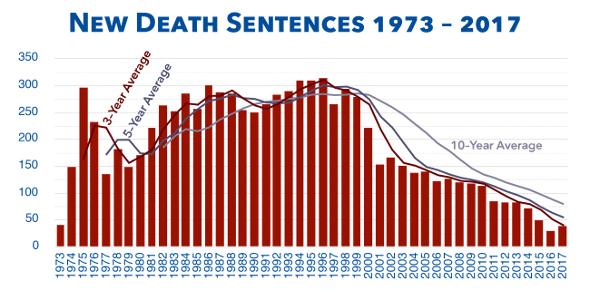
Article(s)
U.S. sees second fewest death sentences and executions in 25 Years
By Death Penalty Information Center, on 22 March 2018
Public support for the death penalty drops to 45-Year low as four More death-row prisoners Exonerated in 2017. “The Death Penalty in 2017: Year End Report” is now available.
2018
United States
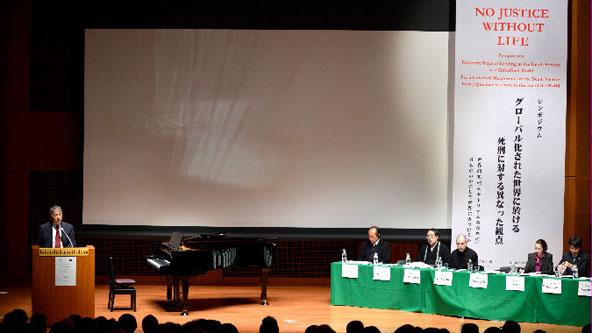
Article(s)
Japan’s death penalty under scrutiny
By The Advocates for Human Rights, on 5 November 2012
After a high-level conference on the abolition of the death penalty in Tokyo on October 29th, the United Nations’ Human Rights Council examined Japan’s record on October 31st as part of the Universal Periodic Review, a worldwide mechanism to monitor the enforcement of human rights. Major Japanese infringements concern the use of the death penalty.
2012
Clemency
Cruel, Inhuman and Degrading Treatment and Punishment
Death Row Conditions
Fair Trial
Intellectual Disability
Japan
Legal Representation
Mental Illness
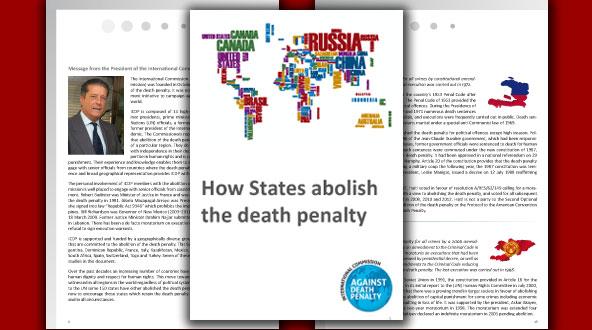
Article(s)
Study explores variety of national paths to abolition
By Thomas Hubert, on 3 May 2013
From courageous political leaders to traditional African values, the International Commission against the Death Penalty’s analysis of the factors leading to the abolition of capital punishment in 13 countries offers advice to retentionist countries.
2013
Cambodia
Haiti
Mongolia
Norway
Public Opinion
Rwanda
Senegal
South Africa
United States
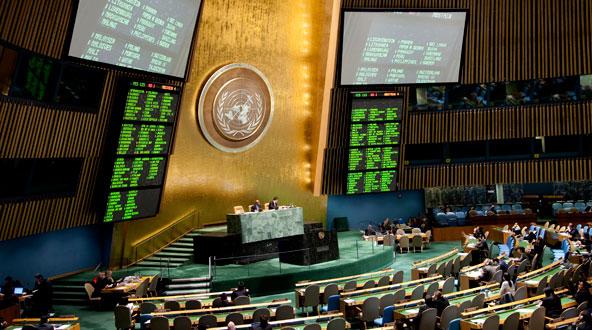
Article(s)
117 countries vote for a global moratorium on executions
By Maria Donatelli, on 19 December 2014
The latest vote at the UN General Assembly shows wider support than ever for a resolution on a moratorium on the use of the death penalty.
2014
Moratorium
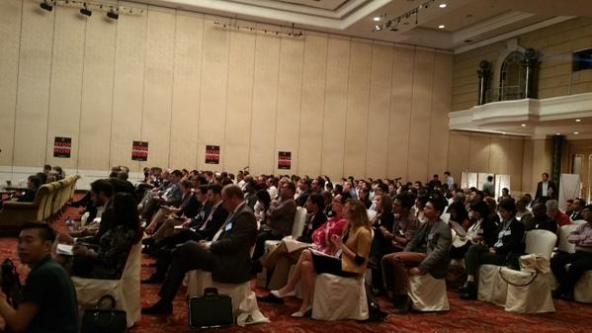
Article(s)
“We need to feel the reality of the death penalty”
By Lauranne Mailhabiau, on 22 June 2015
So said Raphael Chenuil Hazan, director of ECPM, at the opening ceremony of the Asian Regional Congress in Kuala Lumpur.
2015
Indonesia
Malaysia
Public Opinion
Taiwan

Article(s)
Mass convictions and executions fuel terrorism in Iraq
By Clémentine Etienne, on 27 June 2018
Mass executions in Iraq since 2017 seem to hide behind the scourge of terrorism, the major argument given by the current government. Will May 2018 elections defeat this government policy and the misuse of the country’s anti-terrorism law to sentence to death?
2018
Iran (Islamic Republic of)
Public Opinion
Article(s)
Logistics and Partnership Manager
By World Coalition Against the Death Penalty, on 3 February 2020
The World Coalition Against the Death Penalty recruits a logistics and partnership manager for a full time permanent position starting as soon as possible.
2020

Article(s)
NGOs voice fears for dozens of Egyptian prisoners, and hundreds of others, facing execution for drugs-related offenses in Saudi Arabia
By World Coalition Against the Death Penalty, on 13 September 2024
We, the undersigned organisations, are gravely fearful for the lives of hundreds of prisoners threatened with imminent execution in Saudi Arabia on drugs-related charges, including 33 Egyptians on a single wing of Tabuk Prison.
2024
Drug Offenses
Saudi Arabia
Article(s)
Fear of mass executions in Iraq
on 4 January 2010
Information obtained by the World Coalition suggests that the Iraqi authorities have been planning the mass execution of nearly 1,000 people. In a column offered to international newspapers, the World Coalition denounces that barbaric plan.
2010
Clemency
Iraq
Iraq
Women
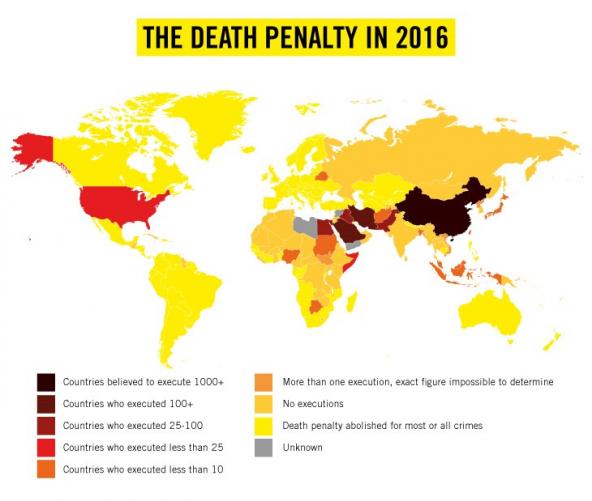
Article(s)
Death Sentences and Executions in 2016
By Amnesty International, on 11 April 2017
Amnesty International published its 2016 global review of the death penalty on Tuesday, April 11th 2017.Excluding China, states around the world executed 1,032 people in 2016. China executed more than all other countries in the world put together, while the USA reached a historic low in its use of the death penalty in 2016.
2017
Article(s)
Final Declaration 4th World Congress Against the Death Penalty
on 26 February 2010
The participants to the World Congress Against the Death Penalty have handed over their final declaration to the UN’s High Commissioner for Human Rights, Navanethem Pillay.
2010
Moratorium
Document(s)
Trapped Inside: Mental Illness & Incarceration
on 25 March 2022
2022
NGO report
Mental Illness
Pakistan
More details See the document
Pakistan’s criminal justice system fails to provide meaningful protection to persons suffering from mental illness at all stages of arrest, trial, sentencing and detention. Under Pakistani law, a person of unsound mind is unable to form criminal intent and therefore is not subject to punishment. Despite this, a disproportionate number of mentally ill prisoners are currently in Pakistan’s jails and on death row.
In light of the above, JPP, in collaboration with Monash University Australia, is launching a report titled “Trapped Inside: Mental Illness & Incarceration”, a comprehensive review of Pakistani law and practice with regards to mentally ill prisoners and defendants. This report seeks to help relevant stakeholders to better understand and respond appropriately to the mental health needs of individuals across the criminal justice system. It focuses on the steps stakeholders can take to promote and protect mental health and well-being of individuals at each stage. The report also explores last year’s landmark ‘Safia Bano’ judgement by Pakistan’s Supreme Court, which commuted the death sentences of two mentally ill death row prisoners, banned the execution of prisoners with psycho-social disabilities and set key safeguards for the same.
- Document type NGO report
- Countries list Pakistan
- Themes list Mental Illness
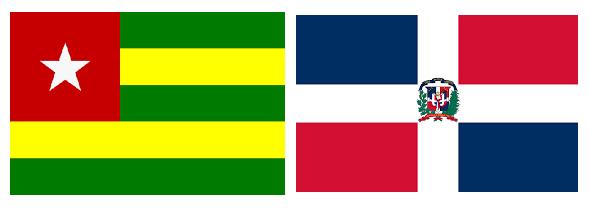
Article(s)
Irreversible abolition of the death penalty in Togo and the Dominican Republic
By Guillaume Colin and Aurélie Plaçais, on 27 September 2016
On 14 September 2016, Togo acceded to the Second Optional Protocol to the International Covenant on Civil and Political Rights on the abolition of the death penalty, joined on 21 September 2016 by the Dominican Republic. These accessions make abolition of the death penalty in Togo and the Dominican Republic irreversible.
2016
Dominican Republic
Togo
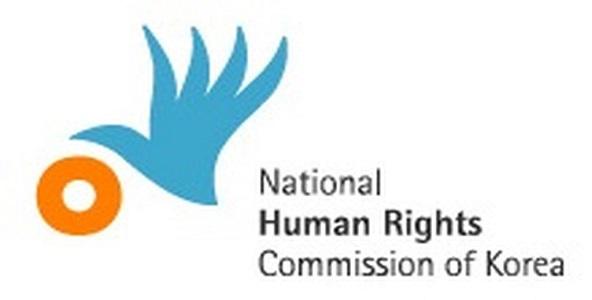
Article(s)
After more than 20 years without executions, a trend toward an official moratorium?
By Clémentine Etienne, on 27 June 2018
On 18 June 2018, the Korean National Human Rights Commission (NHRC) called on the South Korean President to declare an official moratorium on the death penalty to mark the 70th anniversary of the Universal Declaration of Human Rights on December 10.
2018
Republic of Korea
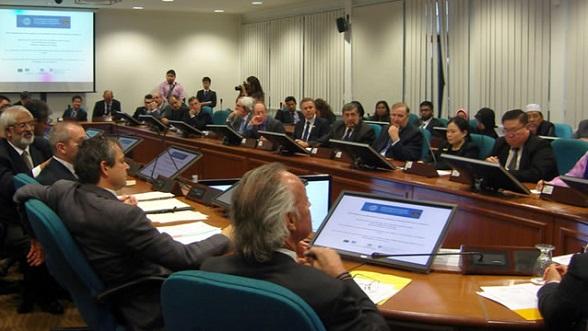
Article(s)
Parliamentarians lead Malaysia Towards Abolition of the Mandatory Death Penalty
By Elisa Bellotti, on 11 December 2015
On 17 November 2015, Parliamentarians for Global Action organized a roundtable and consultations on the abolition of the mandatory death penalty in Malaysia. Parliamentarians play a major role in the country’s journey towards abolition.
2015
Malaysia
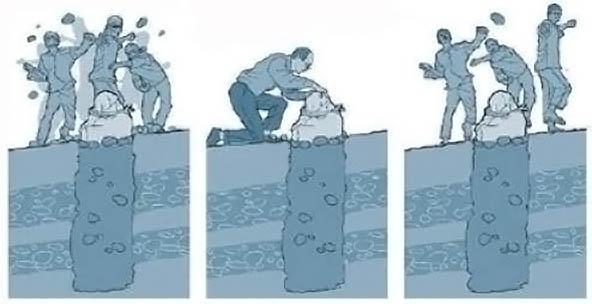
Article(s)
World Coalition members share knowledge on UN advocacy
By Asil Abuassba (The Advocates for Human Rights), on 19 February 2015
Asil Abuassba, a Palestinian intern with World Coalition member organisation The Advocates for Human Rights, attended a training session to help global activists submit reports on the death penalty situation in their countries to UN bodies.
2015
Cruel, Inhuman and Degrading Treatment and Punishment
Death Row Conditions
Fair Trial
Innocence
Intellectual Disability
Juveniles
Mental Illness
Article(s)
Africa takes a good look at the death penalty
on 5 August 2008
A working group of the African Commission on Human and People’s Rights is preparing a report on capital punishment on the continent.
2008
Eswatini
Moratorium
Document(s)
Co-Sponsorship, Note Verbale, and Association Behaviour at the Unga: An Analysis of the Death Penalty Moratorium Resolutions
By Daniel Pascoe & Sangmin Bae, on 22 April 2021
2021
Academic report
Moratorium
More details See the document
Since December 2007, seven resolutions in favour of a universal moratorium on death penalty executions have been adopted by the UN General Assembly. In an earlier paper (Pascoe and Bae 2020) we examined UN member states’ voting patterns over these seven resolutions, asking why some countries vote in a manner seemingly contradictory to their domestic death penalty practices. With a slightly different focus, we now further explore idiosyncratic state behaviour, this time through an analysis of co-sponsorship and the note verbale of dissociation. Our assumption is that states which plan to vote ‘yes’ in the plenary will also co-sponsor the resolution beforehand. We also presume that states which vote ‘no’ in the plenary will sign the note verbale invariably circulated several months later, as a further means of condemnation.
However, when it comes to the moratorium resolutions, not all member states fit into either of these binary categories. Many countries situate themselves in between the two groups of ‘genuine’ supporters and opponents. These countries in the middle evince inconsistency between their plenary votes and what we term their ‘association behaviour’ before or after the plenary, consisting of co-sponsorship and adherence to the note verbale. This paper analyses these groups of countries to determine the underlying causes for their ambivalent, or even contradictory, positions concerning the moratorium resolutions. The findings of this research stand to enrich not only the academic literature on international organizations, but also to inform the campaigning efforts of abolitionist UN member states and non-governmental organizations.
- Document type Academic report
- Themes list Moratorium
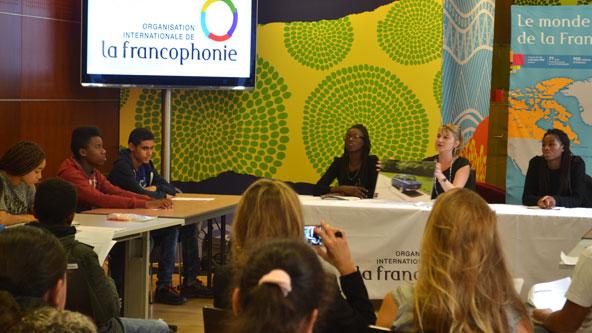
Article(s)
French youth event emboldens next abolitionist generation
By Bronwyn Dudley, on 22 October 2014
The testimony of an exonerated death row prisoners helped international students overcome initial awkwardness and launch into passionate debates at the invitation of Paris-based organisations on World Day Against the Death Penalty.
2014
France
Iran (Islamic Republic of)
Morocco
United States
Article(s)
“Ending the death penalty in Lebanon and worldwide”
on 5 November 2007
Over 75 people attended the conference focussing on the legal and social perspectives of the abolition of capital punishment in Beyrouth on October 17.
2007
Lebanon
Moratorium
Murder Victims' Families
Article(s)
USA: reaching for the dream
on 3 February 2008
For once, the annual conference of the National Coalition to Abolish the Death Penalty opened on an optimistic note.
2008
Public Opinion
United States
Article(s)
ADPAN: tearing down Asia’s death penalty veil of secrecy in 2008
on 3 February 2008
The majority of executions take place in Asia. But this is also the continent where campaigners have developed a fantastic regional abolitionist network, one that reaches across borders, languages and religions.
China
Drug Offenses
Fair Trial
Japan
Mental Illness
Mongolia
Murder Victims' Families
Public Opinion
Republic of Korea
Article(s)
China refuses to consider 250,000-strong petition
on 16 June 2008
A World Coalition delegation found the door closed on June 16 when they attempted to handover to the Chinese Liaison Office in Hong Kong a petition urging for changes in the death penalty system in China.
2008
China
Fair Trial
Innocence
Moratorium
Article(s)
EU-NGO forum: death penalty is a priority
on 6 August 2010
At a meeting in Brussels in July, European institutions and NGOs restated their commitment to a long-term partnership to oppose the death penalty worldwide.
2010
Innocence
Japan
Murder Victims' Families
Document(s)
Somebody’s Child: Amid the Lingering Trauma of Trump’s Executions, a New Project Brings Families to Federal Death Row
By The Intercept, on 15 February 2024
2024
Article
United States
More details See the document
Published on February 11, 2024.
In 2002, Ra’id was arrested alongside several other suspects following a botched bank robbery that left two people dead and another paralyzed. His co-defendants pointed to him as the mastermind, which Ra’id adamantly denied. “I did not take part in that atrocity,” he told the court following his trial. “I did not shoot and kill anyone.”
Newson attended his father’s sentencing hearing, along with his mother, Jeannie Gipson-Newson. A death sentence would be “devastating to my child,” she remembered testifying. But it felt futile. The jurors seemed to have made up their minds. In 2004, Ra’id was sentenced to die.
- Document type Article
- Countries list United States
Document(s)
Testimonies tool – World Day 2022
By the World Coalition Against the Death Penalty, on 28 June 2022
2022
World Coalition
frMore details Download [ pdf - 764 Ko ]
The World Coalition and its members have collected testimonies of victims of torture in the death penalty. Confessions, death row phenomenon, moments before the execution, psychological torture of those not sentenced to death, methods of execution. Read the stories of these victims.
We thank all those who agreed to share their testimonies and their stories.
- Document type World Coalition
- Available languages Outil témoignages - Journée mondiale 2022
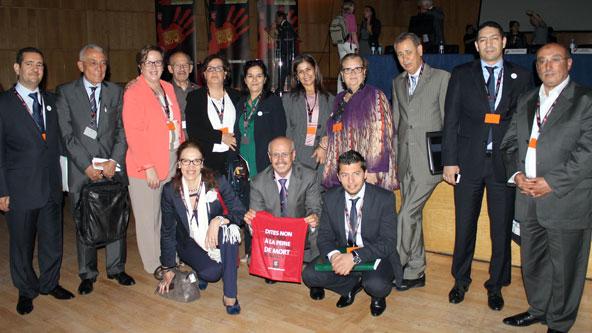
Article(s)
North Africa and Middle East between progress and frustrations
By Thomas Hubert, on 13 June 2013
Shaken up by revolutions and conflicts, the southern shores of the Mediterranean are more than ever enticed for abolition – but opposition is fierce.
2013
Algeria
Lebanon
Morocco
Spain
Tunisia
Article(s)
The difficult struggle facing Iran’s abolitionists
on 3 September 2007
Iran has taken a dreadful step in the wrong direction in the summer of 2007, through a combination of an increase in executions and the repression of activists opposed to the death penalty.
2007
Iran (Islamic Republic of)
Juveniles
Legal Representation
Public Opinion
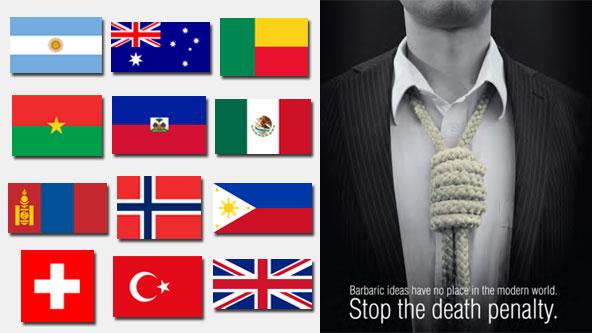
Article(s)
Dialogue should make death penalty “a sentence of the past” – foreign ministers
By World Coalition Against the Death Penalty, on 9 October 2014
Twelve governments from countries with and without capital punishment release a joint declaration calling for a world that “respects human dignity” on World Day Against the Death Penalty.
2014
Argentina
Australia
Benin
Burkina Faso
Haiti
Intellectual Disability
Mental Illness
Mexico
Mongolia
Norway
Philippines
Switzerland
Turkey
United Kingdom
Article(s)
NGOs seek abolition before African human rights body, The Gambia bucks the trend
on 26 November 2010
The African Commission on Human and Peoples’ Rights met in Banjul between November 10-24. A group of abolitionist organisations took part in the conference.
2010
Drug Offenses
Gambia
Moratorium
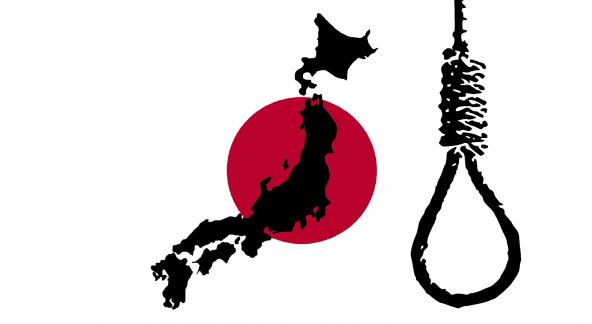
Article(s)
Regarding the execution in Japan of seven people
By World Coalition Against the Death Penalty, on 10 July 2018
STATEMENT – WORLD COALITION AGAINST THE DEATH PENALTY The World Coalition Against the Death Penalty would like to express its sympathy and support to all courageous anti-death penalty activists who have fought bravely to try to prevent the executions of seven people in Japan on the same day, on 6 July. The World Coalition calls […]
2018
Japan
Article(s)
Death sentences in Morocco
on 9 May 2007
The World Coalition against the death penalty, the FIDH and the Moroccan Coalition against the Death Penalty are concerned with the continued pronunciation of death sentences by Moroccan courts
2007
Morocco
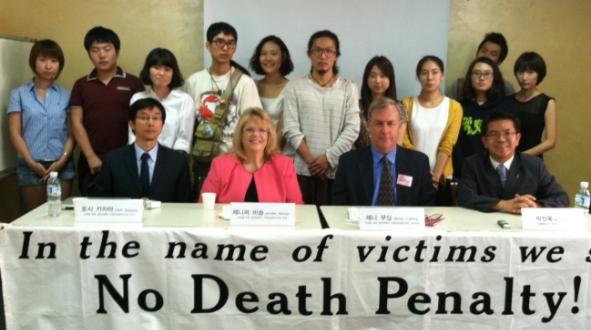
Article(s)
South Korea’s 5,000th day without an execution an opportunity for abolition
By Martin Carbonell with ADPAN and MVFHR, on 8 September 2011
8th September 2011 marks the 5,000th day without executions in South Korea. Houng-oh Kim, a member of the National Assembly and former Speaker, is aiming to introduce a new bill abolishing the death penalty to mark this occasion.
2011
Cruel, Inhuman and Degrading Treatment and Punishment
Moratorium
Republic of Korea
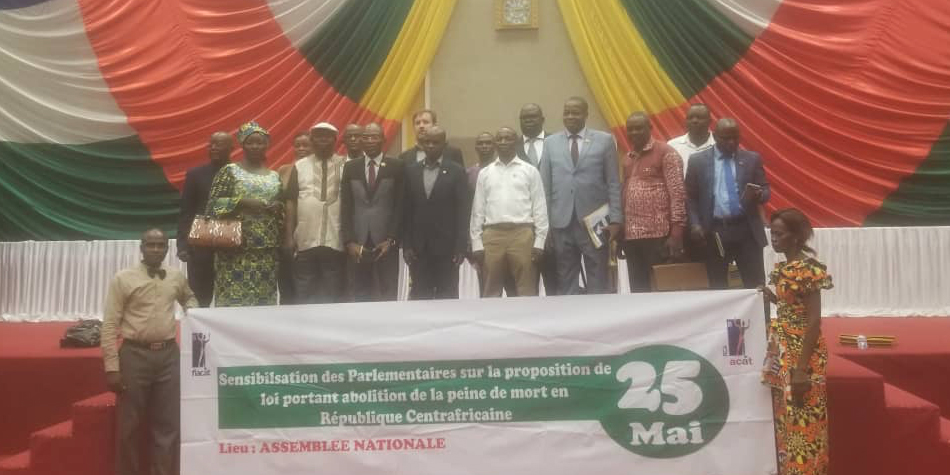
Article(s)
Central African Republic Becomes 24th African State to Abolish the Death Penalty
By ACAT-RCA, ECPM, FIACAT, on 26 June 2022
The President of the Central African Republic promulgated the law abolishing the death penalty on June 27 2022, one month after the National Assembly passed the law. CAR is now the 24th abolitionist state in Africa and the 111th in the world.
2022
Central African Republic
Article(s)
Global outrage at Iranian juvenile execution
on 6 May 2009
Human rights organisations and governments worldwide have slammed the Iranian authorities for the illegal execution of Delara Darabi, a young woman convicted of a murder committed when she was 17.
2009
Innocence
Iran (Islamic Republic of)
Juveniles
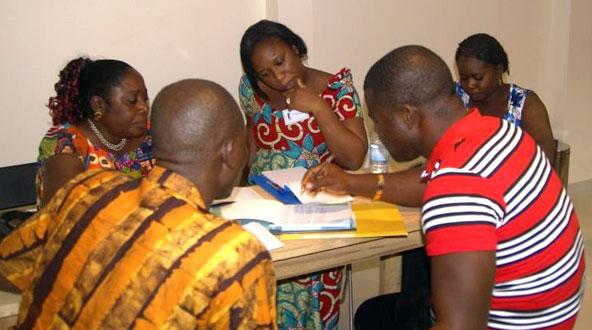
Article(s)
West African ACATs focus on public opinion and lobbying
By Guillaume Colin (FIACAT), on 28 November 2012
Participants to the meeting held by FIACAT in Senegal mid-November received training on regional abolitionist activism and set priorities for their actions.
2012
Benin
Burkina Faso
Côte d'Ivoire
Ghana
Liberia
Mali
Moratorium
Niger
Public Opinion
Senegal
Togo
Article(s)
Book: a victory on the road to abolition
on 19 January 2010
The Taiwan Alliance to End the Death Penalty has just published Staving off the Executioner, a book describing the Taiwanese abolitionist movement’s strategies, challenges and successes.
2010
Fair Trial
Legal Representation
Taiwan
Taiwan
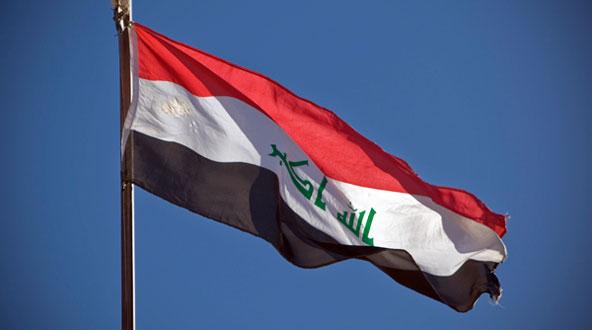
Article(s)
World Coalition opens dialogue with Iraq
By Florence Bellivier, on 16 September 2013
Iraq’s ambassador to Paris met representatives from the World Coalition Against the Death Penalty as the country has been accelerating the rhythm of executions.
2013
Iraq
Moratorium
Terrorism
Article(s)
Youths must stand up against the death penalty!
on 17 September 2007
The Federation of Liberal Students (FEL), a Belgian political organisation, has just joined the World Coalition. FEL president Arnaud Van Praet explains his organisation’s mobilisation against capital punishment.
2007
Belgium
Document(s)
Palestine – Committee Against Torture – Death Penalty – June 2022
on 21 July 2022
2022
NGO report
World Coalition
State of Palestine
More details Download [ pdf - 1747 Ko ]
The State of Palestine on 1 April 2014 ratified the Convention against Torture and Other Cruel, Inhuman or Degrading Treatment or Punishment. On 28 December 2017, the State of Palestine signed the Optional Protocol to the Convention against Torture and Other Cruel, Inhuman or Degrading Treatment or Punishment. On 18 March 2019, the State of Palestine also ratified the Second Optional Protocol to the International Covenant on Civil and Political Rights (ICCPR), which aims to abolish the death penalty. The State of Palestine has not yet abolished the death penalty. Indeed-as described herein-the 14 June 2007 split in power between the Palestinian Authority in Ramallah in the West Bank under President Abbas, and the Hamas movement in Gaza, has been followed by many documented executions in Gaza without the requisite signature of President Abbas, and Gazan military courts conduct trials of civilians, where they can be sentenced to death.
This report considers the prevalence of torture and other issues ancillary to the death penalty itself: confessions under torture or degrading treatment, due process, access to legal counsel, death-row conditions, and methods of execution.
- Document type NGO report / World Coalition
- Countries list State of Palestine
Article(s)
Geneva 2010: uniting abolitionists at all levels
on 28 February 2010
A wide variety of abolitionist actors gathered in Geneva between February 24-26 for the 4th World Congress Against the Death Penalty. After three days of working sessions, the participants called on abolitionist states and internatinonal institutions to support their efforts.
2010
Switzerland
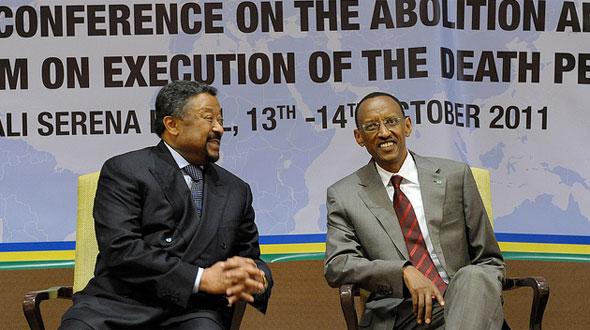
Article(s)
African countries discuss Rwandan example in abolition of the death penalty
on 22 October 2011
Kigali hosted the Inter-African conference against the death penalty on 13 and 14 October.
2011
Gabon
Public Opinion
Rwanda
Rwanda
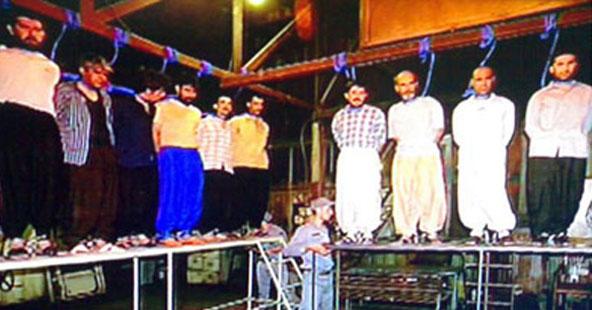
Article(s)
UN: freeze funding of Iran counter-narcotics efforts
By World Coalition Against the Death Penalty, on 17 December 2014
The World Coalition and its members call on UNODC to stop support to Iran as executions for drug trafficking surge.
2014
Drug Offenses
Iran (Islamic Republic of)
Document(s)
The death penalty in Egypt: Ten year after the uprising
By Jeed Basyouni - Reprieve, on 10 August 2021
2021
NGO report
Cruel, Inhuman and Degrading Treatment and Punishment
Death Row Conditions
Egypt
Fair Trial
More details See the document
Reprieve wrote this report about the use of the death penalty in Egypt.
- Document type NGO report
- Countries list Egypt
- Themes list Cruel, Inhuman and Degrading Treatment and Punishment / Death Row Conditions / Fair Trial
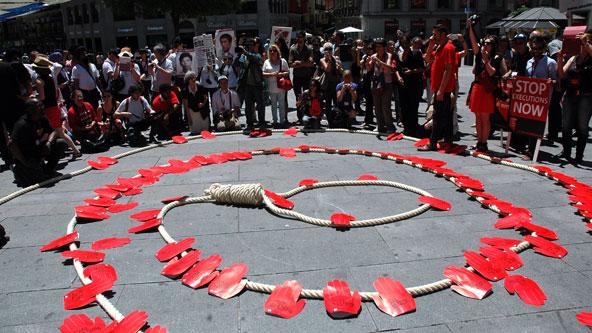
Article(s)
5th World Congress Against the Death Penalty
By Thomas Hubert & Tiziana Trotta, on 27 June 2013
The 5th World Congress Against the Death Penalty took place in Madrid between 12-15 June 2013. During three days, it united members of international civil society, politicians, and legal experts to elaborate abolitionist strategies for the years to come at the national, regional, and international levels, and to send out a clear message to the world: that universal abolition is essential for a world where progress and justice must prevail.
2013
Spain
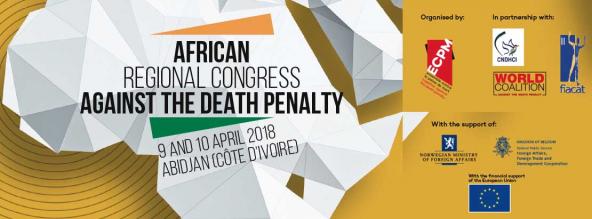
Article(s)
3rd Regional Congress Against the Death Penalty
By World Coalition Against the Death Penalty, on 13 March 2018
The African Congress will be held in Abidjan, Ivory Coast on 9-10 April 2018. Over 300 participants are expected.
2018

Article(s)
Inquiry into Australia’s Advocacy for the Worldwide Abolition of the Death Penalty
By Peter Norden, on 25 November 2015
On 17, 20 and 27 November, the Australian Parliamentary Committee on Foreign Affairs is conducting public hearings on Australia’s advocacy for the abolition of the death penalty. The World Coalition and its members uses this opportunity to make their voices heard.
2015
Australia
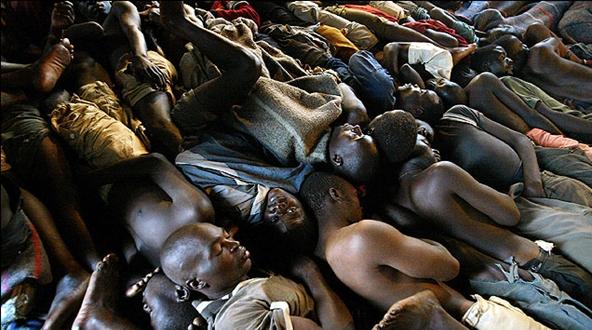
Article(s)
Malawi – five years after abolishing the mandatory death penalty
By Emile Carreau, on 19 September 2012
In 2007 abolitionists celebrated when the High Court of Malawi abolished the mandatory death penalty. In what become known as the Kafanteyeni ruling the mandatory death penalty was deemed by the bench as unconstitutional as it amounts to an arbitrary deprivation of life, denies an accused the right to a fair trial and the right to be free from inhuman and degrading treatment.
2012
Malawi
Document(s)
A/HRC/48/L.17/Rev.1 Resolution adopted by the Human Rights Council
on 2 June 2021
2021
International law - United Nations
aresfrruzh-hantMore details See the document
- Document type International law - United Nations
- Available languages A/HRC/48/L.17/Rev.1 قرار اعتمده جملس حقوق اإلنسايفA/HRC/48/L.17/Rev.1 Resolución aprobada por el Consejo de DerechosA/HRC/48/L.17/Rev.1 Résolution adoptée par le Conseil des droits de l’hommeA/HRC/48/L.17/Rev.1 Резолюция, принятая Советом по правам человекаA/HRC/48/L.17/Rev.1 人权理事会 月 日通过的决议

